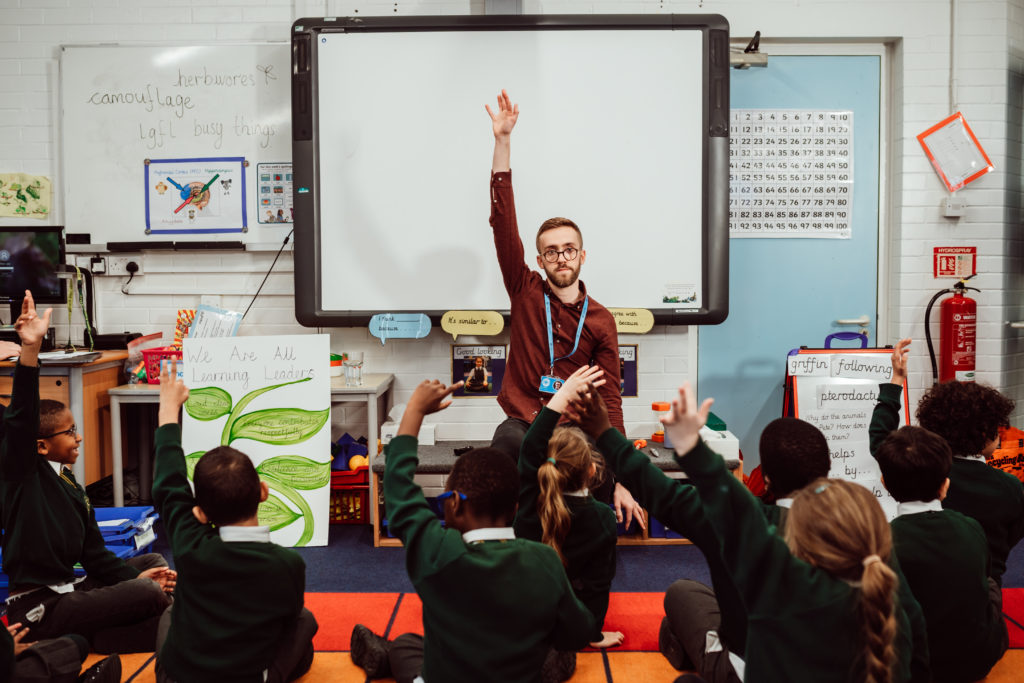
What do Deep Dives look like in practice? How does treatment of a specialist subject like music differ from core subjects like reading and maths? What can heads and subject leaders expect on inspection day? Do early criticisms levied by teachers and governors have merit and potential long-term impact? And most importantly, how can schools overcome any assessment blindspots?


Click here if you missed the first article in our two-part in-depth series on Ofsted’s new Education Inspection Framework – Putting Education at the Centre of Inspection.
So now that we’ve fully unpacked what Ofsted is looking to achieve with its new inspection framework, it’s important to turn from high-level strategy to on-the-ground implementation:
So as the first sets of inspection results flow through the new system and you begin to prepare for your own upcoming assessment, what can you, your staff and your pupils expect?
TES offered some early insight into the new inspection regime, based on the first batch of reports published. They identified four key areas of which schools should be aware:
Download our Ofsted Deep Dive Resource
The newspaper reported that at Leyland St Mary’s Roman Catholic School in Lancashire, “which went from ‘requires improvement’ to ‘good’, inspectors found that leaders had developed strong curricula for reading, writing and maths.2
[Alternatively] Hawkesbury CE Primary School in Badminton, South Gloucestershire, has been downgraded from ‘outstanding’ to ‘requires improvement.’ Its report includes concerns that over several years, standards in reading and maths have declined in both key stages 1 and 2. [The report] says teachers’ plans to improve pupils’ progress in reading lack the detail that is needed and leaders have not identified the root causes sufficiently.”3
While reflecting just two of many hundred inspection results, these report snippets highlight how Ofsted’s new assessment protocol looks heavily at standards and pupil outcomes through the lens of curriculum versus that of delivery. And in those instances where improvement plans, root causes and progression cannot be sufficiently well-mapped, schools are shown to receive significantly downgraded assessments.


Sing Education takes the keystones of curriculum, inclusion and pupil voice very seriously.
We start by looking at the current provision in place and how this can be further developed or refined. We sit down with the school and analyse what they’re already doing – and to offer solutions they might implement to improve this. One way, of course, is to utilise Sing Education staff on site. The second, and powerfully complementary approach, is to utilise Sing Education’s consultancy expertise to augment or reframe your current provision.
For instance, we might work alongside your internal music coordinator or class teachers themselves to ensure that music provision is unified and works across the board. That includes everything from curricular music to choirs, clubs, SEN groups, instrumental tuition, singing assemblies and more. We collaboratively develop bespoke progression maps and schemes of work, which represent the programme’s medium and long-term planning. These tools are also great for reporting – for class teachers to develop reports and updates for parents on what the children have been learning.
Download our Ofsted Deep Dive Resource
But, most importantly, these tools enable us to track the progress of pupils which can subsequently be used for Ofsted planning. Our progression maps and schemes of work allow schools to clearly demonstrate that their music curriculum is progressive and is in line with the new framework. We can also introduce additional recordkeeping elements when appropriate. For example, in some schools, we have charted records of ‘pupil voice’ to monitor what children are remembering from their learning in the classroom so that if Ofsted comes in to do a deep dive on music, we have evidence of logging pupil progression over time.
Rose Moss, product owner at Twinkl, the online community hub for teacher-created planning and assessment materials, suggests Deep Dive planning include the following key dimensions 4:
Download our Ofsted Deep Dive Resource
Moss concludes by advising “Everybody in school will need to be as prepared as possible for a Deep Dive: SLT, class teachers, governors and even students! 5”


There are, of course, some perceived difficulties with Ofsted’s new approach.
Nick Brook, deputy general secretary of the NAHT headteachers’ union, expressed early doubts whether Ofsted would be able to reliably assess the quality of education in a school.
He said: “The ambition in Ofsted’s plans is sound, but we are deeply concerned that it will prove to be unworkable in practice. Under these new arrangements, inspectors are being asked to do too much, with too little resource, and with too great a degree of subjectivity.
“It is right that Ofsted looks at the ‘quality of education’ on offer in schools – one would not expect them to look at anything else. But Ofsted has given its inspectors an impossible task to perform.6“
According to Kapow Learning, “Ofsted have adopted an approach that now has a thorough dig into individual subjects, with the view that it’s a sure-fire way of ensuring that schools take non-core subjects seriously. That said, subjects that were previously of little interest to inspectors, have now suddenly taken centre stage, leaving already overworked and unsuspecting subject leads (who don’t get additional TLR payments or extra time) in the firing line.7</sup”
And now, even some months on from launch, the national body for school governors has also expressed concern with the new assessment practice.
According to SchoolsWeek, a report published by the National Governance Association finds “Ofsted’s new framework is diminishing the role of governance in schools, patronising staff and leading to rushed inspections 8”
Emma Knights, chief executive of the NAG, said “it was ‘particularly dispiriting ‘ the changes ‘render governance less visible.’
‘The inspectorate’s commitment to us that governance would feature as much in inspection as it has done in the past has not materialised,’ she added.
Knights said it was ‘important in terms of improving the system to have acknowledgement when governance is working well: that emphasis of what ‘good’ looks like from Ofsted is taken seriously”.
The NGA has now urged that governance ‘should return as a mandatory portion of the report.’” 9
It started with a simple idea. What if Sing Education could produce the very best music education resources available to train young learners from nursery straight through to junior school (KS2) and then train up a cadre of excellent teachers to deliver their singing-led approach to schools across London? Done!
Over the last 10 years, Sing Education has invested heavily in the development, testing, training and rollout of our own bank of high-quality, bespoke curricular resources. This is one of our strongest elements of differentiation which sets us apart from individual peripatetic practitioners and from other music services. It is a distinct point of pride for the organisation.
Download our Ofsted Deep Dive Resource
According to Josh Cadman, co-founder and director at Sing Education “This year we have developed our new Music Curriculum Pack. We’ve designed it to equip our partner schools with the tools they need to successfully monitor the music curriculum and demonstrate it to Ofsted. ”
As headteacher at a Sing Education partner school, you can expect the following lesson planning, music resources and training opportunities to be made available to you – tailored to your specific learning setting:
Founded in 2014 and serving more than 9,000 children each week, Sing Education is a first class provider of primary school music education. Focusing on high-quality, singing-led tuition, we deliver a complete solution for schools which includes teacher recruitment, training and management, bespoke curricular resources and educational consultancy services.
Through music lessons, singing assemblies, choirs, after school clubs and instrumental tuition, Sing Education works with students from Nursery right through to Year 6. Our core philosophy is that “Every Child Has A Voice,” and, as educators active in the classroom, our directors and teachers know firsthand how much young learners benefit from exciting, rewarding music education.
#SingEducation #MusicChangesLives
Sources:
